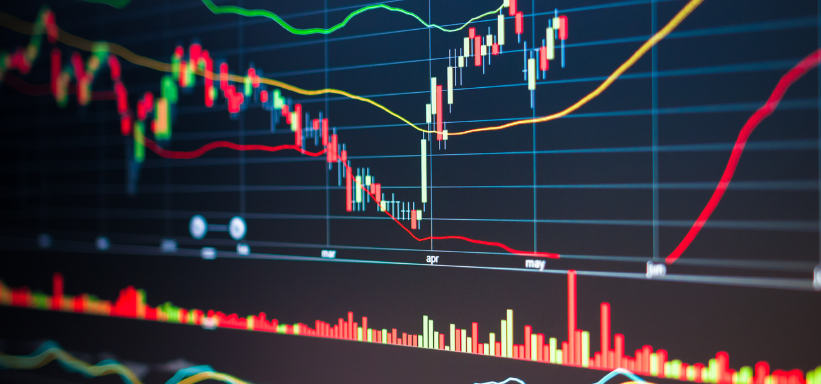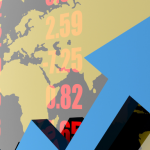Executive Summary
-
Geopolitical events significantly influence stock market volatility, impacting investor confidence and market performance.
-
Understanding these risks allows investors to make informed decisions and manage portfolios more effectively.
-
This article outlines definitions, strategic benefits, risks, and practical insights related to geopolitical instability and its influence on markets.
-
Historical examples illustrate how markets react to global tensions and how investors can position themselves accordingly.
-
Tools and actionable strategies are included to help investors navigate turbulent market periods.
Introduction
In today’s hyperconnected economy, geopolitical risks no longer exist in isolation—they ripple swiftly across borders, industries, and investor portfolios. Trade wars, armed conflicts, and diplomatic tensions have the power to rattle global stock markets in minutes. For investors, founders, and business leaders, understanding how these risks impact market movements is no longer optional—it’s essential. This article dives into how geopolitical risks shape stock market volatility and outlines key tactics to manage such unpredictable shifts.
Definitions / Context
Geopolitical Risks refer to political events or tensions—such as wars, sanctions, regime changes, or international disputes—that influence the global economy and investment environment. These risks often trigger fluctuations in global capital flows, commodity prices, and market sentiment.
Stock Market Volatility measures the degree of variation in trading prices over time. It reflects uncertainty or risk and is frequently influenced by geopolitical developments.
Understanding both concepts helps investors interpret the often-chaotic reactions of financial markets to international events.
Benefits / Pros
-
Opportunistic Entry Points: Volatility can result in undervalued assets, offering smart investors a chance to buy low.
-
Increased Risk Awareness: Monitoring geopolitical factors encourages proactive risk management.
-
Push for Diversification: These risks emphasize the importance of spreading investments across geographies and sectors.
Risks / Cons / Challenges
-
Abrupt Market Swings: Sudden political events can cause sharp declines or spikes in market indices.
-
Loss of Investor Confidence: Continued tension may reduce institutional investment and slow market growth.
-
Policy Barriers: Geopolitical crises often result in sanctions, tariffs, or restrictions that affect international business and investment flows.
Step-by-Step Process
How to Prepare for Geopolitical Risks in Investing:
-
Track International Developments: Subscribe to reliable geopolitical news sources to stay ahead of market-moving events.
-
Diversify Assets: Allocate investments across sectors, regions, and asset classes to spread risk.
-
Use Hedging Instruments: Employ strategies like options, gold, or sector ETFs to hedge against downside movements.
-
Get Professional Guidance: Financial advisors can help tailor geopolitical risk strategies to your investment profile.
-
Evaluate Market Fundamentals: Avoid emotional decisions—ground your choices in company and sector fundamentals.
In 2022, the onset of the Russia–Ukraine conflict sent shockwaves through global financial markets. Oil and natural gas prices surged, equity markets dropped, and investors rushed toward safe-haven assets like gold and the US dollar.
However, investors who had previously diversified into energy-related sectors and used hedging instruments like commodity ETFs managed to buffer their losses. This event highlighted the need for both regional awareness and asset-class diversification during geopolitical upheavals.
— Strategic Diversification During the Russia–Ukraine Conflict
Expert Tips / Strategic Insights
-
Epiidosis Recommends: Always maintain a portion of your portfolio in low-correlation or counter-cyclical assets like gold or utilities.
-
Be Tactical, Not Reactive: Don’t rush into decisions during headlines—evaluate long-term implications before shifting capital.
-
Review Exposure Regularly: Rebalance your portfolio in response to evolving geopolitical climates rather than fixed timelines.
Tools / Resources / Calculators
-
News Aggregators: Google News, Bloomberg, and Reuters for real-time geopolitical updates.
-
Risk Assessment Tools: Morningstar, Yahoo Finance, and Riskalyze offer tools to stress-test portfolios.
-
Investment Platforms: Apps like Zerodha, E*TRADE, and Charles Schwab offer market alerts and analytical insights.
-
Volatility Indexes (VIX): The CBOE Volatility Index is a reliable measure of expected market turbulence.
Conclusion
Geopolitical risks are now a constant in modern investment strategy. From unexpected conflicts to policy shifts, these events create volatility but also unveil hidden opportunities. By staying informed, diversifying investments, and using proactive strategies, investors can turn market instability into strategic advantage. As the geopolitical climate continues to evolve, so must the strategies used to navigate it. Epiidosis encourages investors to build resilience, think globally, and act with both agility and wisdom.






















